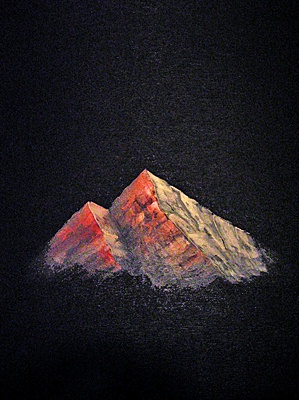All Nonfiction
- Bullying
- Books
- Academic
- Author Interviews
- Celebrity interviews
- College Articles
- College Essays
- Educator of the Year
- Heroes
- Interviews
- Memoir
- Personal Experience
- Sports
- Travel & Culture
All Opinions
- Bullying
- Current Events / Politics
- Discrimination
- Drugs / Alcohol / Smoking
- Entertainment / Celebrities
- Environment
- Love / Relationships
- Movies / Music / TV
- Pop Culture / Trends
- School / College
- Social Issues / Civics
- Spirituality / Religion
- Sports / Hobbies
All Hot Topics
- Bullying
- Community Service
- Environment
- Health
- Letters to the Editor
- Pride & Prejudice
- What Matters
- Back
Summer Guide
- Program Links
- Program Reviews
- Back
College Guide
- College Links
- College Reviews
- College Essays
- College Articles
- Back
Africa MAG
Last year I traveled to Tanzania with my family to summit Africa’s highest point and go on a safari. We also experienced the culture firsthand.
First was the hike, and boy, was it a doozy! It took us four days to get to the last camp. There, we were awakened at midnight to climb to the summit. After what seemed like a millennium of walking in the dark by the light of our headlamps in the freezing cold we made it to the top, 19,342 feet, just in time to see the sunrise.
Never in my life have I seen a more spectacular sight. I had accomplished what few will ever get to do, and what half of those who attempt never finish. Some have even died doing what I did. For my reward, I bore witness to the sun rising over the magnificent land of Africa. I perched above the clouds on a pile of rubble that in my mind was a throne, breathing in the oxygen-depleted air and thinking that nothing is impossible, and that I truly am one of the world’s luckiest kids.
The second part of the trip was entirely different, though no less spectacular. It began with a drive through the heart of Tanzania to the Ngorongoro Crater, one of the world’s best safari locations. There, I saw a zoo without bars where animals did as they wanted and we were the ones “locked up” in our cars.
For a photographer, the thrill of driving through a herd of zebras and wildebeests is incomprehensible, and when you think nothing could be better, you spot a group of hyenas eyeing a baby wildebeest grazing not 10 feet from your Land Rover. Then, as if a hidden switch has been flipped, the hyenas are off, chasing the wildebeest! You feel awful for the wildebeest, but deep down you want to see it taken out by the hyenas. Unfortunately for the hyenas, the wildebeest finds its mom and the two escape the hungry hyenas for one more day.
The most profound part of my trip was meeting the people. No one in the United States knows what being poor means until they have traveled to a third-world country and seen it for themselves. We walked through a village where the really nice houses were two rooms made of cinder blocks with a thatched roof. The average house was a hut that consisted of small saplings covered with cow dung. These people are considered lucky, since they have enough money or cows to own property. Many only have sandals made from tires, and the poor have little more than a loincloth. Before my trip, I never really understood how lucky I was, and I now see my whole life in a completely different way.
One of the last things we did before we returned home to our computers and nice homes was to stop at a school, where we noticed several odd things. First, there were no windows, just holes with bars. Second, there were children sitting outside the windows. Our driver explained that those were the poor kids who didn’t have the 10 cents a month required to attend school formally, so they sat outside the windows and listened to the teacher.
We discovered the children inside weren’t much better off. There was just one textbook for each subject, shared by the entire class. This book was barely held together by string, and only three or four kids had a writing utensil and paper with which to do their work. The rest used a small chalkboard and a single piece of chalk.
When the driver translated that we wanted to give the students pens, pencils and paper, we not only saw the teacher’s eyes light up, but those of the students, too. Giving those kids the basics and seeing the looks on their faces warmed my heart. They were grateful for everything they had and took nothing for granted. This was the most enduring and amazing part of the trip that made me realize just how lucky we are in the United States.
It took a trip to the third world to change my perception of reality that changed me forever. I no longer feel I need certain things, I only want them, and I know that I can do without. This has transformed me into a hard worker because I feel I must justify my good fortune.

Similar Articles
JOIN THE DISCUSSION
This article has 0 comments.
